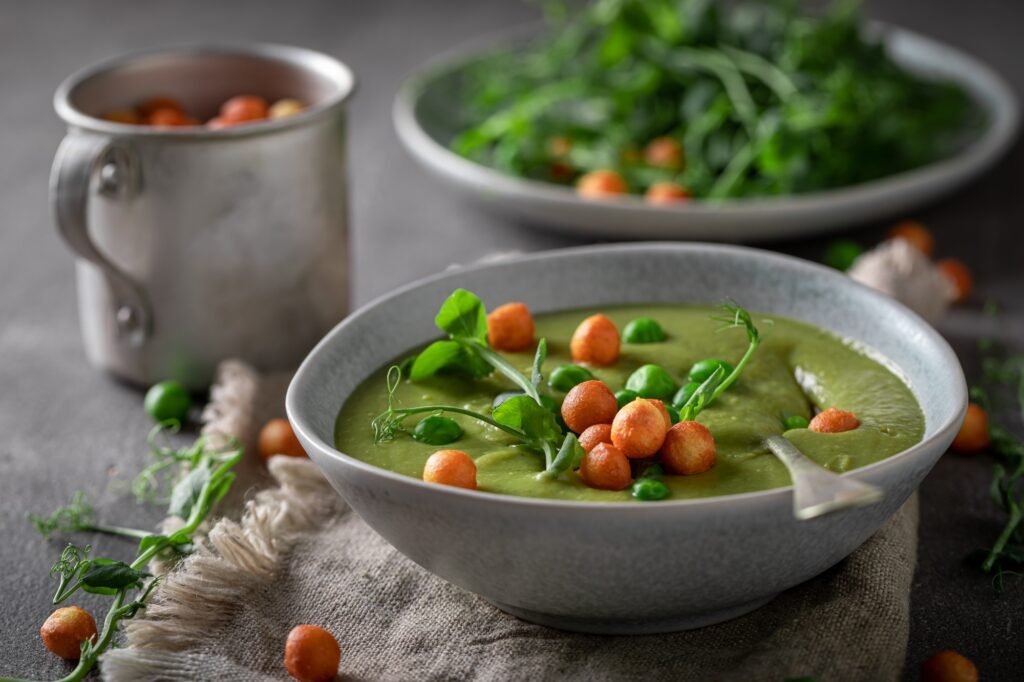Recipe Details
- Country: Canada

- Region/Province: Pan-Canadian (French-Canadian influence)
- Prep Time: 15 minutes
- Cook Time: 2 hours
- Total Time: 2 hours 15 minutes
- Servings: 8
- Difficulty: Easy
Health Benefits
- High fiber content supports digestive health and satiety
- Plant-based protein from split peas
- Rich in potassium and folate for heart health
Dietary Categories
 High-protein, High-fiber, Heart-healthy, Budget-friendly
High-protein, High-fiber, Heart-healthy, Budget-friendly Contains meat (can be made vegetarian)
Contains meat (can be made vegetarian)
Nutritional Highlights (per serving)
- Calories: 280
- Protein: 18g
- Fiber: 12g
- Key Nutrients: Folate, Potassium, Iron, B-vitamins
Ingredients
- 2 cups dried split peas – plant protein, fiber
- 1 smoked ham hock (or 1 cup diced lean ham) – smoky flavor, protein
- 8 cups water – cooking liquid
- 2 large carrots, diced – beta-carotene, natural sweetness
- 2 celery stalks, diced – fiber, minerals
- 1 large onion, diced – prebiotic fiber
- 3 cloves garlic, minced – immune support
- 2 bay leaves – aromatic depth
- 1 tsp dried thyme – antioxidant herbs
- 1/2 tsp smoked paprika – enhanced smoky flavor
- Salt and pepper to taste
- 2 tbsp fresh parsley, chopped – vitamin C, fresh flavor
Instructions
- Prepare base: In large pot, combine split peas, ham hock, and water. Bring to boil, then reduce heat and simmer 1 hour.
- Add vegetables: Add carrots, celery, onion, garlic, bay leaves, thyme, and paprika. Continue simmering 45 minutes until split peas break down and soup thickens.
- Remove ham hock: Remove ham hock, let cool slightly, then remove meat from bone. Discard bone and skin, dice meat.
- Finish soup: Return diced ham to pot. Remove bay leaves. Season with salt and pepper. Stir in fresh parsley before serving.
Chef’s Healthy Modifications
- Bacon or sausage → Lean ham for less saturated fat
- Added cream → Natural creaminess from broken-down split peas
- Excess sodium → Bay leaves and herbs for complex flavor
- Large portions → Proper serving sizes with high fiber for satiety
Cultural Context
Split pea soup became popular in Canada through French settlers and remains a winter staple. The use of ham hock reflects the French-Canadian tradition of using every part of the animal for economical, nutritious meals.





